Search
Search Results

Article
Pausanius' Guide To Ancient Athens
Pausanius (l. 110-180 CE) was a geographer and historian who traveled extensively, taking notes on points of interest, then wrote on them in guide books which could be used by tourists visiting the sites described. His works have long been...
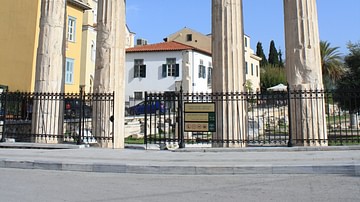
Article
Hellenistic & Roman Agora of Athens
Pericles’ agora of Athens flourished under Macedonian control. After Macedon was defeated by Rome, the Romans added to the district even before Greece was taken as a province and more so afterwards. The Roman version of the agora continued...

Definition
Ancient Greek Religion
In the ancient Greek world, religion was personal, direct, and present in all areas of life. With formal rituals which included animal sacrifices and libations, myths to explain the origins of mankind and give the gods a human face, temples...
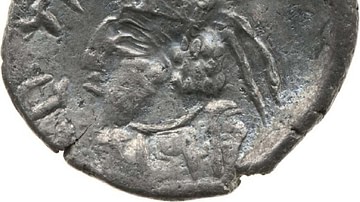
Definition
Mithra
Mithra is the Persian god of the rising sun, contracts, covenants, and friendship. He also oversaw the orderly change of the seasons, maintained cosmic order, and was responsible for bestowing divine grace on kings, legitimizing their rule...
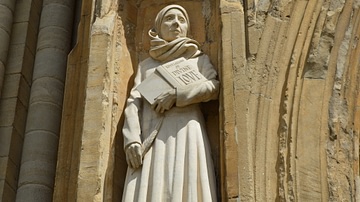
Definition
Julian of Norwich
Julian of Norwich (l. 1342-1416 CE, also known as Dame Julian, Lady Juliana of Norwich) was a Christian mystic and anchoress best known for her work Revelations of Divine Love (Julian's original title: Showings). Almost nothing is known of...
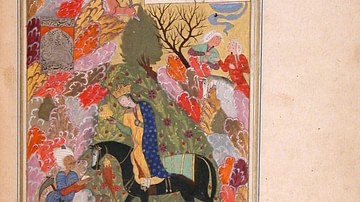
Definition
Khamsa of Nizami
Khamsa (also known as Quintet or Panj Ganj) is the best-known work of Nizami Ganjavi (c. 1141-1209 CE) and without a doubt one of the most prominent works of Persian literature. Written during the last decades of the 12th century CE, the...

Article
Another Ariamanus Statue Found: The Evil Spirit of Mithraic Religion
It is rare when a new find creates renewed interest in an old subject. Here, the new find is a leontocephaline (lion-headed) figure of unknown provenance, weighing 5.8 kg and 37 cm in height with a width of 14 cm. Its base is partially broken...
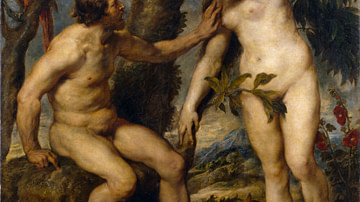
Article
The Christian Concept of Human Sexuality as Sin
In the ancient world, human sexuality was crucial for the survival of the tribe and clan as well as pleasurable, a gift from the gods. Thousands of native cults emphasized fertility through rituals and prayers, and ancient gods were depicted...

Article
The Medicine Arrows and the Sacred Hat
The Medicine Arrows and the Sacred Hat is a short essay by anthropologist George Bird Grinnell (l. 1849-1938) explaining the origin and significance of the medicine arrows and buffalo hat, central to Cheyenne culture. The essay provides a...

Article
Scripture, Faith, the Sacraments, and the Holy Spirit in Calvin’s Institutes
The Protestant Reformation was a period of religious history marked by a great defining, debating, and divergence on what it meant to be an orthodox, faithful Christian. To this end, many theologians offered their own explanations of the...